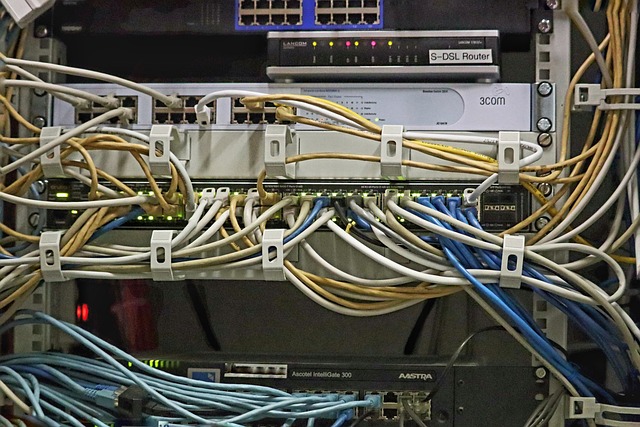# Exploring the Impact of AI Technology on Society: Innovations That Shape Our Daily Lives
Artificial Intelligence (AI) has become a cornerstone of modern technology, influencing various sectors and reshaping the way we live, work, and interact. As AI continues to evolve, its impact on society is profound, manifesting in innovations that enhance convenience, efficiency, and connectivity. This article delves into the significant ways AI technology is transforming our daily lives, focusing on healthcare, communication, and transportation.
## Revolutionizing Healthcare
In recent years, the healthcare industry has witnessed a remarkable transformation due to AI technology. Advanced algorithms and machine learning models are now being employed to analyze vast amounts of medical data, leading to improved diagnostic accuracy. For instance, AI systems can examine medical images, such as X-rays and MRIs, with a level of precision that often surpasses human capabilities. This not only expedites the diagnostic process but also enhances patient outcomes by enabling earlier detection of diseases.
Moreover, AI-driven predictive analytics are proving invaluable in patient care management. By analyzing historical patient data and identifying patterns, these systems can forecast potential health risks and suggest personalized treatment plans. Consequently, healthcare providers are empowered to offer tailored interventions, ultimately leading to better patient engagement and adherence to treatment regimens. The shift towards personalized medicine represents a significant leap forward in how healthcare is delivered, with AI at the forefront of this evolution.
In addition to diagnostics and treatment, AI is also revolutionizing drug discovery. Traditional drug development processes can take years, often with high failure rates. However, AI algorithms can analyze chemical compounds and predict their efficacy, significantly speeding up the identification of viable drug candidates. This not only reduces the time and cost associated with bringing new medications to market but also holds the promise of addressing unmet medical needs more effectively.
## Enhancing Communication
The realm of communication has also been transformed by AI technologies, particularly through natural language processing (NLP) and machine learning. Virtual assistants, such as Siri, Alexa, and Google Assistant, have become commonplace, allowing users to interact with their devices using voice commands. These AI-driven platforms have made information retrieval more accessible, enabling individuals to multitask and manage their daily activities with greater ease.
Furthermore, AI chatbots are revolutionizing customer service across various industries. By employing NLP, these chatbots can understand and respond to customer inquiries in real time, providing immediate assistance and reducing wait times. As a result, businesses can enhance customer satisfaction while optimizing operational efficiency. The ability of chatbots to learn from interactions and improve over time demonstrates the potential of AI to create more meaningful and effective communication channels.
Social media platforms have also embraced AI technology to curate content and enhance user experiences. Algorithms analyze user behavior and preferences, enabling platforms to deliver personalized content feeds. This not only keeps users engaged but also influences how information is disseminated and consumed in society. While this personalization can enhance user experience, it also raises concerns about echo chambers and the spread of misinformation, prompting discussions about the ethical implications of AI in communication.
## Transforming Transportation
Transportation is another sector where AI technology is making significant strides. The advent of autonomous vehicles represents one of the most talked-about innovations in recent years. Companies like Tesla, Waymo, and others are developing self-driving cars that rely on AI algorithms to navigate complex environments. The potential benefits of autonomous vehicles are substantial, including reduced traffic accidents, improved fuel efficiency, and enhanced mobility for individuals unable to drive.
Moreover, AI is optimizing traffic management systems in urban areas. By analyzing real-time data from various sources, such as traffic cameras and sensors, AI can predict congestion patterns and suggest alternative routes. This not only alleviates traffic jams but also contributes to reduced emissions and a lower carbon footprint. As cities become increasingly congested, the role of AI in transportation planning and management will likely become even more critical.
Public transportation systems are also leveraging AI to enhance service delivery. Predictive analytics can be used to forecast passenger demand, allowing transit authorities to allocate resources more effectively. For example, AI can help determine when to increase bus or train frequency based on expected ridership patterns. This leads to a more efficient and responsive public transportation network, ultimately encouraging greater use of these services.
## Conclusion
The impact of AI technology on society is far-reaching and multifaceted, with innovations that continue to shape our daily lives across various sectors. From revolutionizing healthcare and enhancing communication to transforming transportation, AI is not just a technological advancement; it is a catalyst for change. As we embrace these innovations, it is essential to remain vigilant about the ethical implications and challenges that accompany them. Balancing the benefits of AI with considerations of privacy, security, and equity will be crucial as we navigate this new landscape. In the coming years, the ongoing integration of AI into our lives will undoubtedly redefine what is possible, making it imperative for individuals, businesses, and policymakers to engage in thoughtful dialogue about its future.











